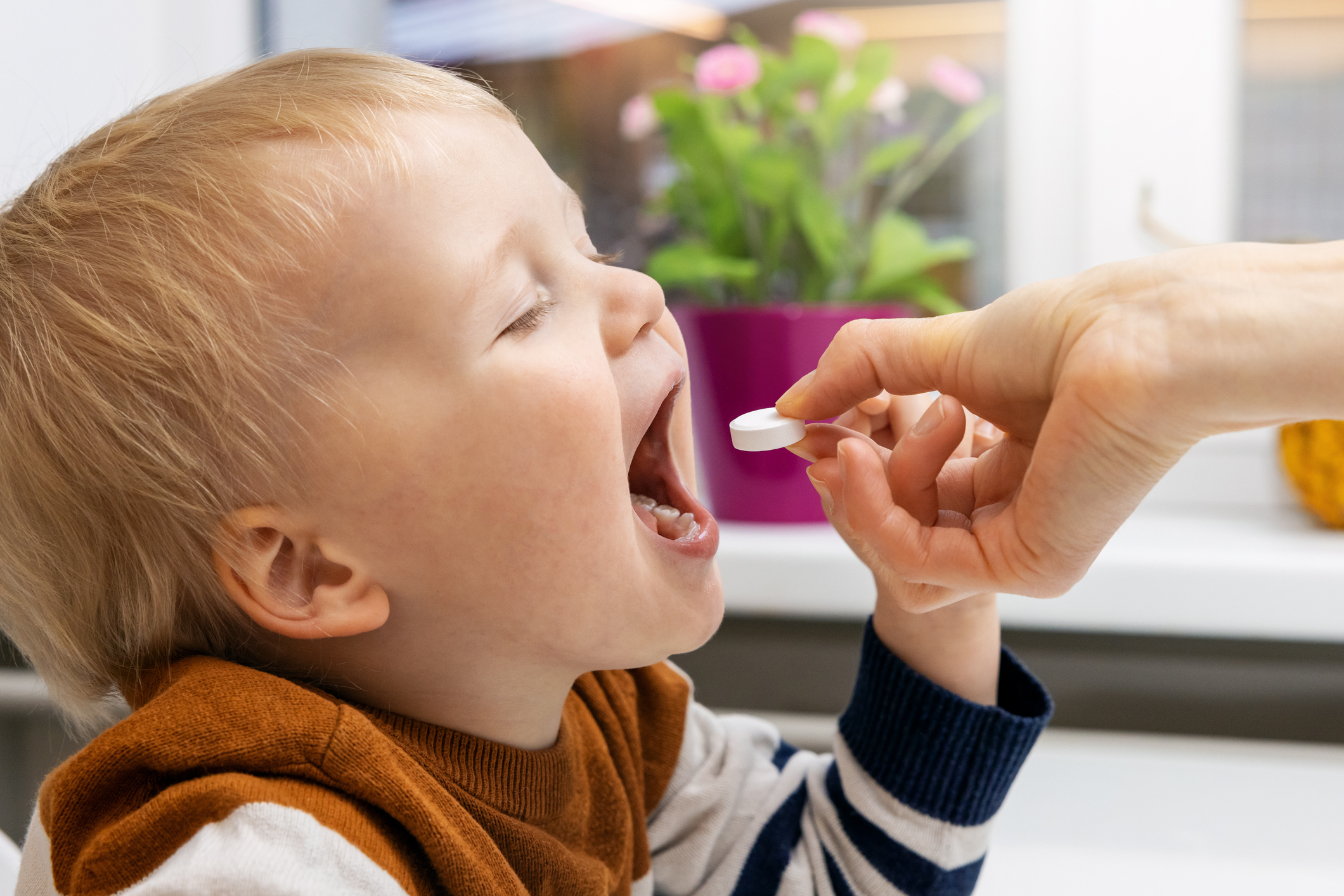
This content was originally produced for audio. Certain elements such as tone, sound effects, and music, may not fully capture the intended experience in textual representation. Therefore, the following transcription has been modified for clarity. We recognize not everyone can access the audio podcast. However, for those who can, we encourage subscribing and listening to the original content for a more engaging and immersive experience.
All thoughts and opinions expressed by hosts and guests are their own and do not necessarily reflect the views held by the institutions with which they are affiliated.
A lot of commercials will tell you that your child needs special vitamins or supplements, or they won't grow properly or have the best brain development they can. But what vitamins or supplements do healthy kids really need? Well, the answer might surprise you. Even if they're a picky eater, they don't need special vitamins, supplements, or nutrition drinks.
Most Kids Don't Need Special Vitamins or Supplements
Many of us grew up on chewable vitamins. I know I did. That's what parents did. I remember taking a daily chewable Flintstones vitamin every morning as a kid. And I was kind of a picky eater too, but I never had a problem growing.
We really don't see vitamin deficiencies in the United States like in some other countries. Everything seems to be fortified in our stores. Cereals provide a good balance of vitamins and minerals. Milk has added vitamins A and D. Even orange juice can be bought with extra calcium.
Ideal Diet for Kids: The Balanced Approach
Yes, ideally, kids should have a balanced, healthy diet. They should have at least three servings of dairy and five servings of fruits and vegetables. They should have protein from meats, eggs, and beans, and they should eat whole grains.
Often, parents will think that their child has fatigue or anemia, look pale, or be so picky that they aren't getting enough nutrients. Most kids, unless they are having excessive dairy intake, do not have iron-deficiency anemia. Toddlers can, but again, that goes back to the milk intake.
If they have true fatigue or pallor, your child's pediatrician can do blood tests to see if they are anemic.
For other vitamins, we do not routinely do blood work to check those vitamin levels unless there is an underlying medical reason for checking them. Also, insurance companies often will not pay for those extra tests either.
If your child has a lot of eating restrictions, say, due to food allergies, digestive or genetic conditions, that cause problems with digestion, or autism, then a daily vitamin would be a good idea. Same if they are on a vegan diet.
If your child just isn't eating a good variety of foods because they want to eat fast food or junk food a lot, then it's more a matter of getting your kids to understand that this is not healthy eating and work on the eating habit rather than letting them continue their food choices long term. Instilling a good relationship with healthy foods when kids are little will help encourage them to eat more healthily their entire lives.
Safety Guidelines for Giving Your Child Vitamins and Supplements
If you do give your child vitamins or supplements, be sure to follow the dosing guidelines exactly. Some vitamins and minerals can be bad in doses too large for children. Make sure your kids can't just help themselves to the vitamins. They come in tasty forms now, and kids may think they're more like treats and they should be treated more like medicine.
Also, make sure your child is a little bit older if taking chewable vitamins. They can be choking hazards for kids under 4.
Basically, the bottom line is most kids don't need extra vitamins and supplements. They need encouragement and education on eating a good variety of healthy foods.
Nutrition from food itself is better absorbed than that from a tablet. Start them off eating healthy. Don't fall for those cute faces that beg and plead for fast food or cookies or candy all the time. It's okay if they don't eat sometimes because eventually they will, even if only healthy foods are offered.
And stay strong. It's hard, but if you stick with teaching your kids about healthy foods, you will teach them a lesson that will help them for the rest of their lives.
updated: April 25, 2024
originally published: July 5, 2022
More Answers to Your Questions on Keeping Your Kid Healthy
Latest trends and issues in children's health on the Healthy Kids Zone with Dr. Cindy Gellner

Winning the Bedtime Battle: How to Help Kids Sleep Better
Bedtime battles are common, but a consistent sleep routine can make a world of difference. Pediatrician Cindy Gellner, MD, talks about why sleep schedules matter, how to handle common bedtime struggles, and when to seek medical advice for your child's sleep issues.
How to Handle Screen Related Temper Issues in Children
Is your child's screen time causing more tantrums? Pediatrician Cindy Gellner, MD, reveals how excessive digital exposure can lead to emotional challenges in kids.





